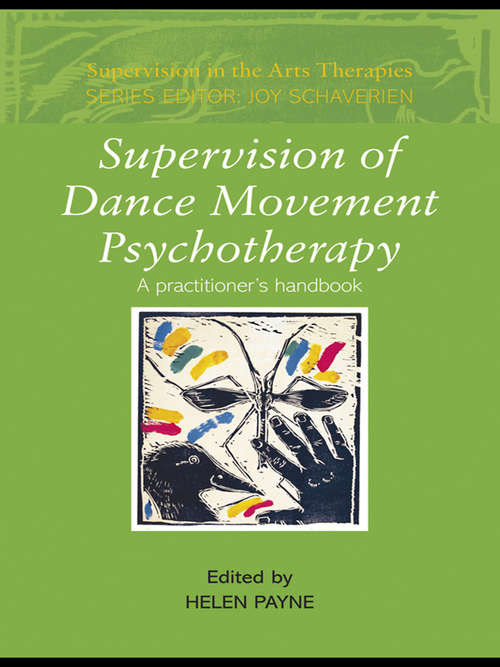Supervision of Dance Movement Psychotherapy: A Practitioner's Handbook (Supervision in the Arts Therapies: Vol. 3)
By:
Sign Up Now!
Already a Member? Log In
You must be logged into Bookshare to access this title.
Learn about membership options,
or view our freely available titles.
- Synopsis
- Supervision of Dance Movement Psychotherapy is the first book of its kind to explore the supervisory process in the psychotherapeutic practice of movement and dance. Helen Payne brings together international contributors to discuss how the language of the body plays an important part in the supervisory experience for psychotherapists and counsellors. Contributors consider a variety of models and examine the role of supervision in a range of professional and cultural settings, forming a theoretical base to current practice in dance movement psychotherapy. Chapters include: an overview of supervision in dance movement therapy working psychotherapeutically with the embodied self transcultural issues the use of authentic movement in supervision a novice practitioner’s experiences. Outlining key concepts from both theory and practice, this book contributes towards a deeper understanding of the mentor-trainee relationship and the curative power of movement and dance. Supervisors and supervisees in dance movement psychotherapy as well as the arts therapies, counselling, and psychotherapy will find it invaluable.
- Copyright:
- 2008
Book Details
- Book Quality:
- Publisher Quality
- ISBN-13:
- 9781134124497
- Related ISBNs:
- 9780203895047, 9780415413442, 9780415413442, 9780415413435, 9780415413435
- Publisher:
- Taylor and Francis
- Date of Addition:
- 04/01/20
- Copyrighted By:
- Helen Payne
- Adult content:
- No
- Language:
- English
- Has Image Descriptions:
- No
- Categories:
- Entertainment, Nonfiction, Art and Architecture, Psychology
- Submitted By:
- Bookshare Staff
- Usage Restrictions:
- This is a copyrighted book.
- Edited by:
- Helen Payne
Reviews
Other Books
- by Helen Payne
- in Entertainment
- in Nonfiction
- in Art and Architecture
- in Psychology
